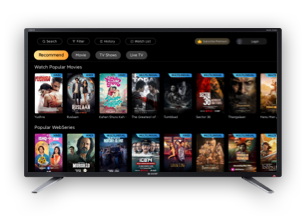U2
U2 has been perhaps the biggest music act in the world since the late 1980s to the current day. They take prominent stands on human rights issues, expressed through their lyrics and other public statements and actions. The band's lead singer, Bono, has become quite prominent in charity movements and has been nominated for the Nobel Peace Prize. The band consists of Bono, lead singer and songwriter; The Edge, lead guitar, keyboards, vocals; Adam Clayton, bass guitar; Larry Mullen Jr., drums. Their manager is Paul McGuinness (1978-2013).
The band formed in Dublin, Ireland, in 1976. The three members who strongly identified themselves as Christians (all except Clayton) decided to pursue and promote the band's career in a manner that would be consistent with their religious beliefs, which are heavy on social action. Theology professor Eugene Peterson says the band has "little patience with media-driven aspects of the Christian religion and a church and culture that shows little concern for justice and poverty and sickness".
The band's popular 1983 song "Sunday Bloody Sunday" commemorated the slaughter of innocent civilians during the Irish troubles. It called for a renunciation of violence, a sentiment that resonated greatly with the people of Ireland. Throughout the 1980s, the band used this song to campaign against the Irish Republican Army's (IRA) efforts to raise money to fuel continued armed conflict. The IRA sent a threat to U2 that if they continued their campaign, they would be kidnapped. The band continued anyway. The band's 1984 album "Unforgettable Fire" was named after paintings made by the survivors of the Hiroshima and Nagasaki atomic bombs. The album's songs "Pride" and "MLK" were both tributes to the modern-day leader they most admire, Martin Luther King. Another song, "Bad", was about heroin addiction, which was a serious problem in their hometown of Dublin at that time.
U2 were major participants in the historic and seminal "Live Aid" concert of 1985, which raised funds for relief from a severe drought in Ethiopia. The band was seen by many of the 1.5 billion people who viewed the concert on live television, and Bono's unscripted leap into the crowd captured the imagination of all. The more than 75 performing groups raised some $250 million for the charity. In the months following the concert, U2's record sales skyrocketed and have never come back down. In 1986, the band headlined a promotional tour to support Amnesty International, and the effort reportedly tripled the organization's membership.
In the 1990s, the band's music and concerts mocked the excesses of commercialism. Some critics failed to understand that Bono's exaggerated on-stage personas during the "Zoo TV" tour were parodies, and thus concluded that the band had given in to what they in fact were criticizing. In the early 2000s, U2 shifted from stadium extravaganzas to performing in smaller arenas where they were closer to their audiences. In 2004, the band teamed up with iPod for an innovative promotional campaign.
U2 continues their work for charity and social action. They promoted the Northern Ireland Peace Accords, raised money for the survivors of the Omagh bombing, played in devastated Sarajevo following the war there, helped bolster the shaky economy of New York City by playing there following the September 11 terrorist attacks, participated in the Live 8 series of concerts to relieve Third World debt, and continue to promote the Make Poverty History campaign. Bono has become prominent in efforts to end poverty and seek relief from AIDS and promote trade for Africa. He has become quite celebrated for these efforts apart from his music and he often finds himself publicly hobnobbing with presidents and finance ministers to promote these charitable ends.
U2 was inducted into the Rock and Roll Hall of Fame in 2005. By that year, they had won 22 Grammy awards, a historic record surpassed only by Stevie Wonder.



